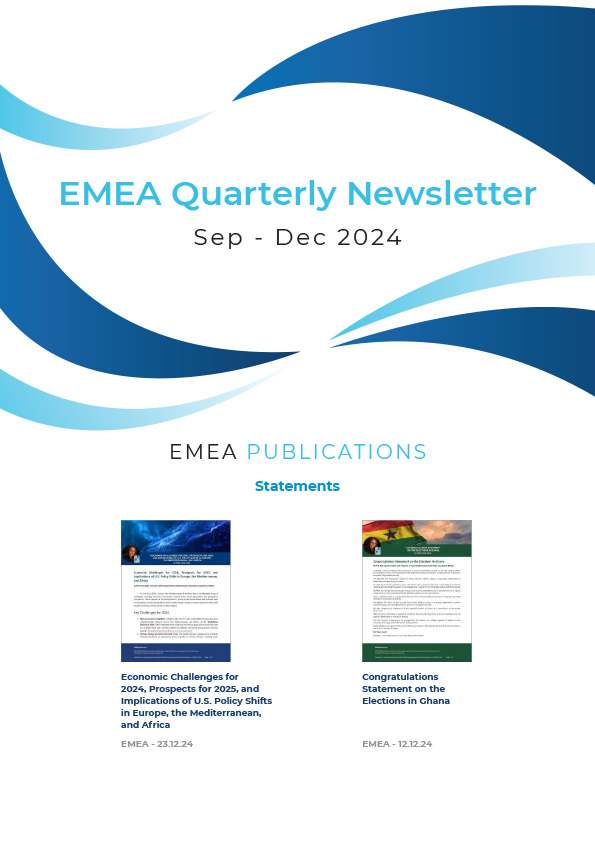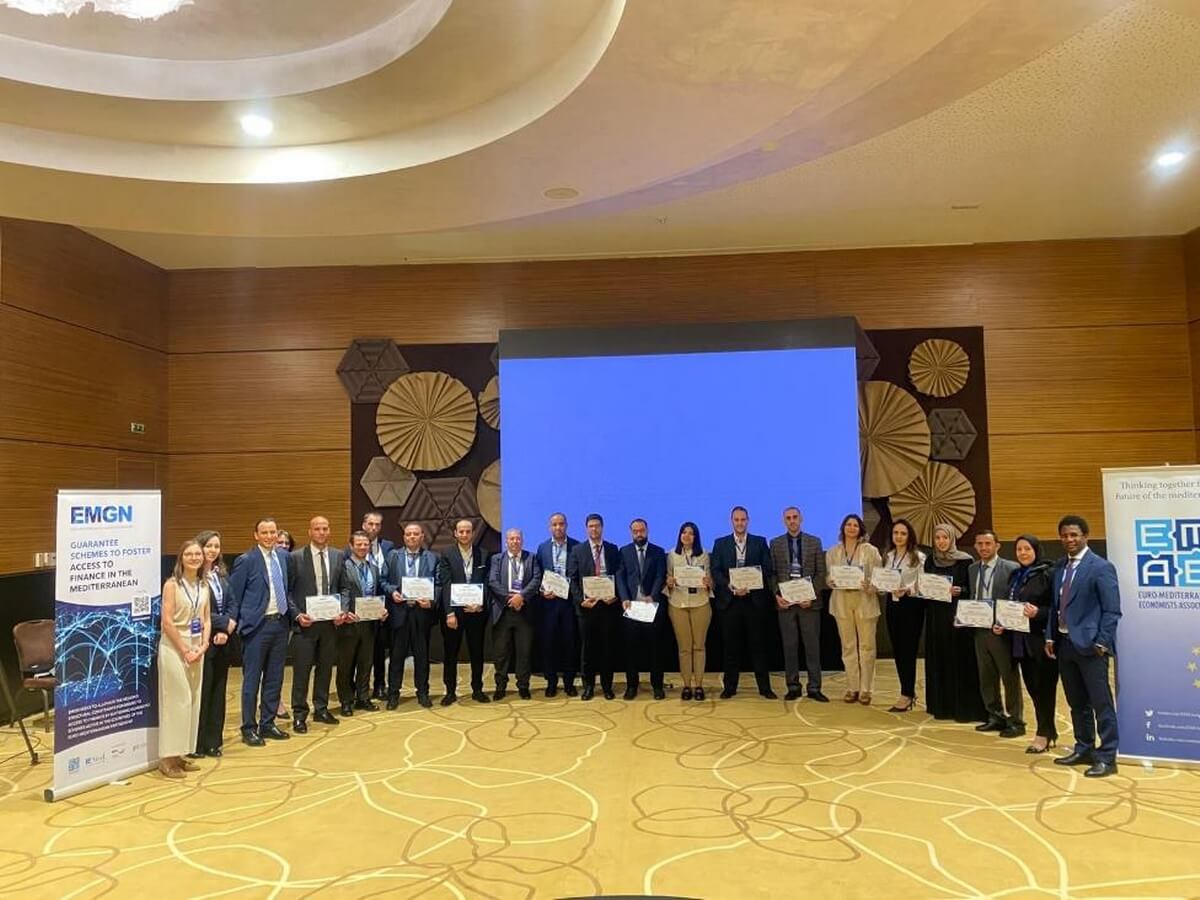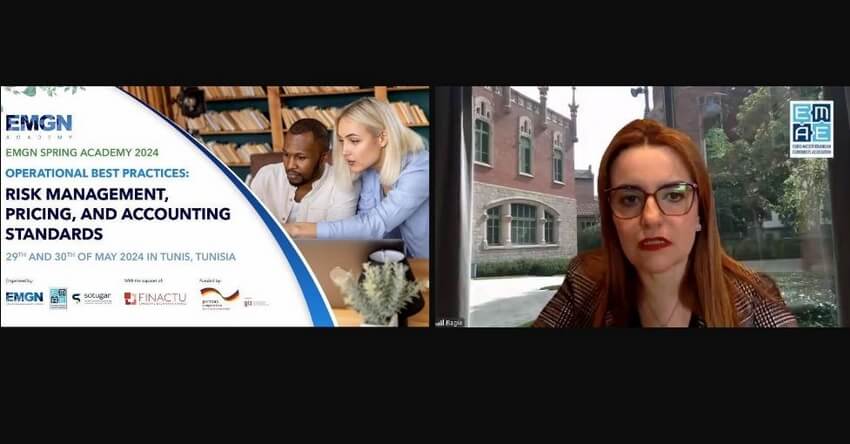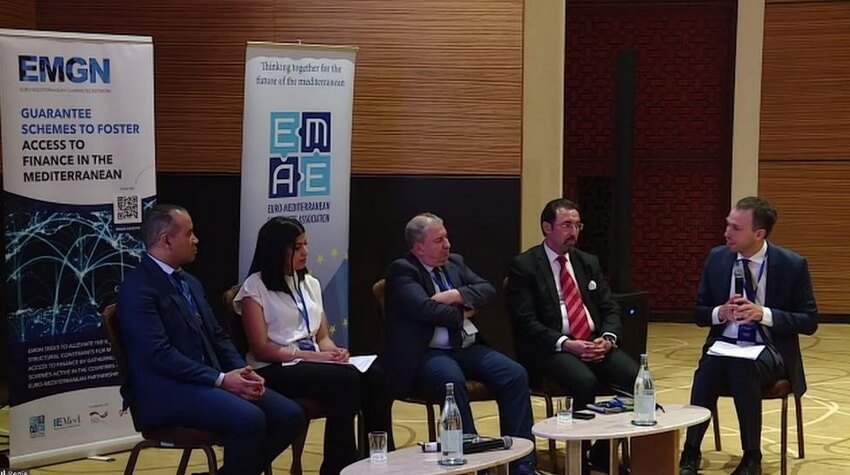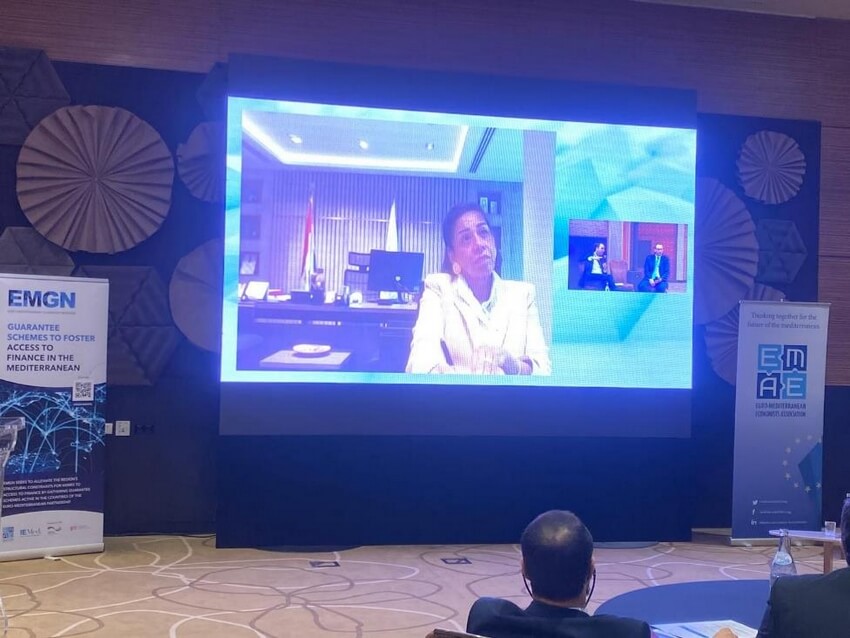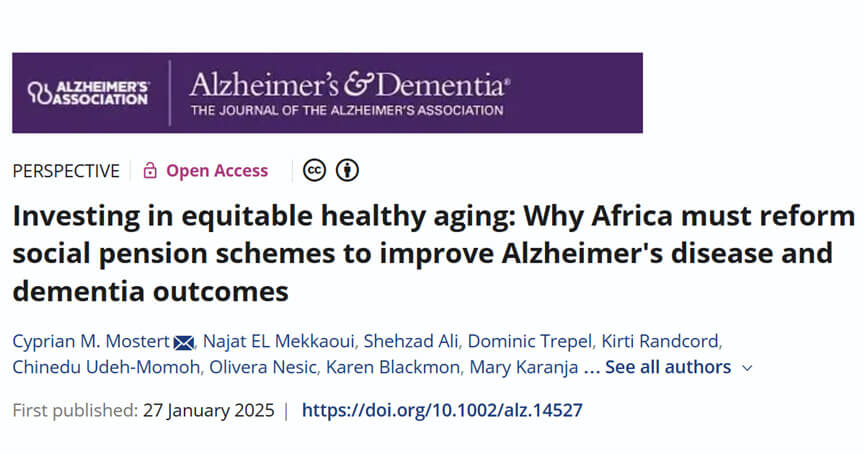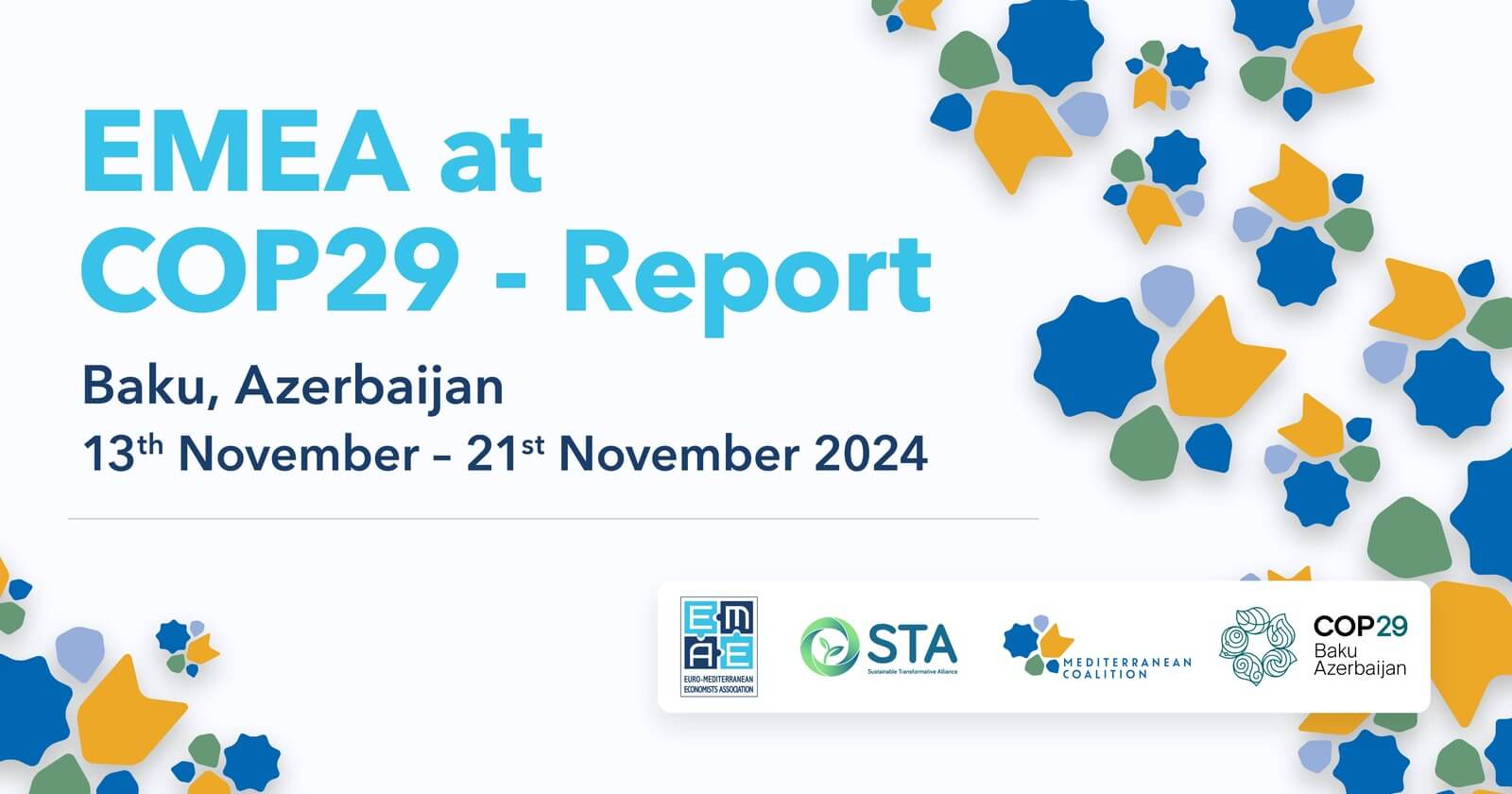The Spring Academy “Risk Management, Pricing, and Accounting Standards” took place on 29 & 30 May in Tunis, Tunisia. It was organised by the Euro-Mediterranean Guarantee Network – EMGN, led by the Euro-Mediterranean Economists Association – EMEA in collaboration with FINACTU Group, Mazars and Fonds de Solidarité Africain. The Academy was hosted by SOTUGAR, a Credit Guarantee Company in Tunis, and a member of the EMGN Network.
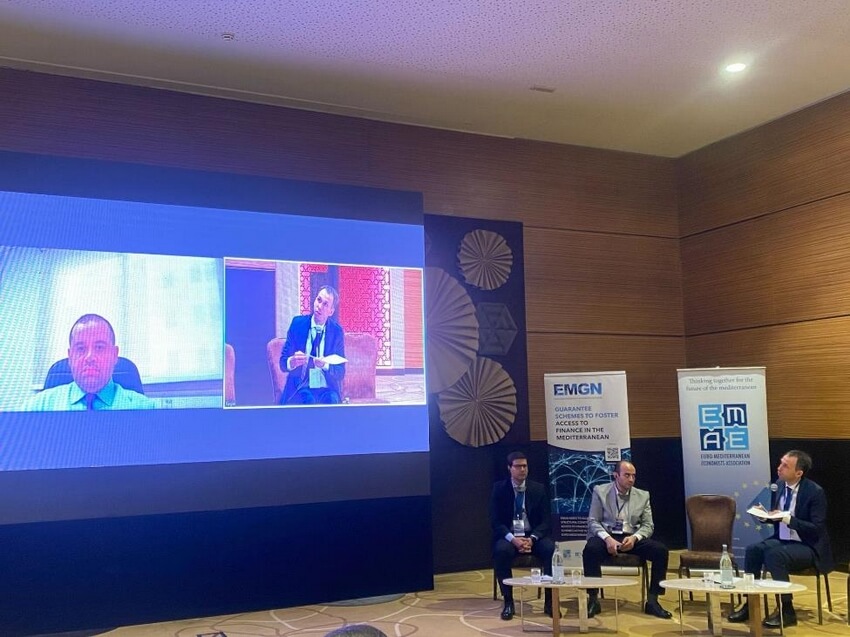
Online: Ahmad Beirqdar, Manager of Risk Management and Compliance at JLGC, Jordan; Mustapha Ait Laamoud, Chief Risk Officer at Tamwilcom, Morocco; Mostafa Awad, Head of Credit Risk at CGC Egypt, Egypt; Luc Morio, Partner at Finactu Group & Moderator to the EMGN Spring Academy 2024
The main aim of this academy was to share knowledge and good practices among Credit Guarantee schemes (CGSs) from South, East, and North Mediterranean partner countries on topics related to risk management, pricing, and accounting standards.
The Academy opened with welcome addresses by Prof. Rym Ayadi, President of the Euro-Mediterranean Economists Association – EMEA, and Mr. Hakim Hamdi, Deputy Director of the Société Tunisienne de Garantie, Sotugar, along with an introduction speech by the academy moderator Luc Morio, Partner at FINACTU Group.
Prof. Rym Ayadi highlighted in her speech that “in the realm of finance, transparency and accountability are the pillars that support sustainable growth. By embracing robust accounting practices and adhering to international standards like IFRS, we can build a foundation of trust and stability that empowers businesses and economies to thrive.”
On-site were present 25 Members of EMGN, external participants, and associates including representatives for Tamwilcom Morocco, Sotugar Tunisia, CGC Egypt, LGF Libya, JLGC Jordan, YLG Yemen, HDB Greece, and guests from Mazars Tunisia & Morocco, and BMICE Tunisia. Online where connected up to 45 individual members of EMGN institutions and guest speakers from the African Solidarity Fund (AFS)
The Spring Academy 2024 received remarkable ratings from its participants with an average overall score of the thematic session of 4.4/5, and an overall score of the organization of the academy of 4.85/5
The Spring Academy 2024 closed with the concluding remarks by Ms Nagla Bahr, Managing Director, CGC Egypt & EMGN Chairwoman.
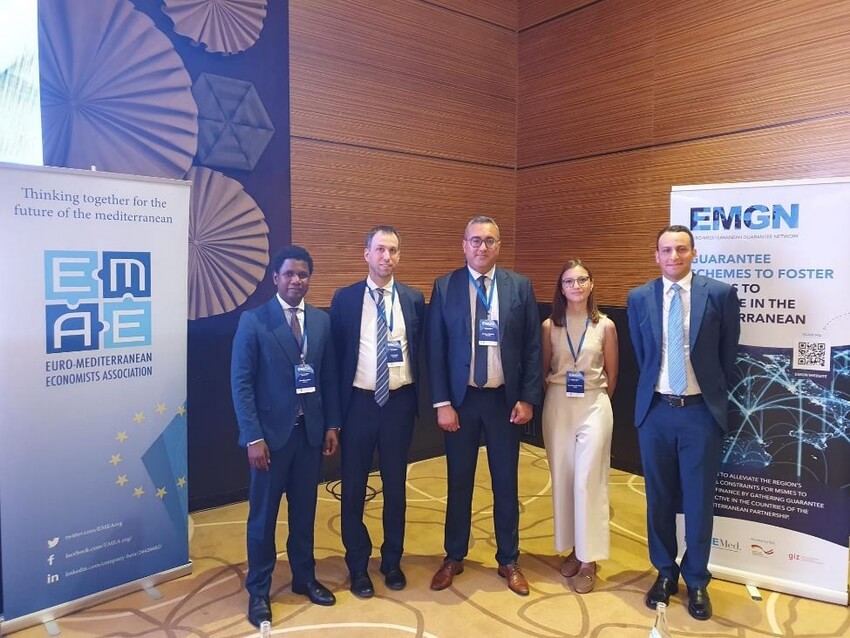
From left to right: Ibrahima Sow, Partner at Forvis Mazars Morocco; Luc Morio, Partner at Finactu Group; Borhen Chebbi, Partner at Forvis Mazars Tunisia; Christine de Visser, Project Manager at EMEA; Larbi Chraibi, Senior Manager at Finactu Group
Key highlights from the EMGN Spring Academy 2024 training workshop:
- Effective risk management and accounting transparency are essential for financial stability, which in turn fosters sustainable economic development.
- The Hellenic Development Bank (HDB) shared with peers their experience during Greece’s financial crisis, highlighting that the main challenges faced were funding disruptions, operational risks, and market risks. To overcome these challenges, it was key for HDB to implement proactive risk management, build trust and confidence, commit to safeguarding interests, adopt a comprehensive KYC process, and leverage data-driven decision-making.
- CGSs in the region identified their top risks as credit risk, political uncertainty, operational risk, and cash flow risk linked to reimbursement. Managing these risks effectively is crucial for CGSs to maintain financial sustainability. However, as impact-oriented institutions, they must strike a balance between mitigating risks and fulfilling their mandate of promoting access to finance and contributing to economic development with state support.
- CGSs use a variety of techniques to assess the evolution of risks such as credit scoring, stress-testing, and statistical and financial models.
- CGSs discussed their pricing methods, considering factors such as sources of funds, risk margin, and overheads and operational costs.
- A few years after COVID-19, it seems that CGSs portfolios remained relatively stable, largely due to state support.
- To improve relationships with banks, CGSs can leverage digitalization to enhance communication, accelerate processing time, and simplify requirements.
- Implementing IFRS 9 offers several benefits that can enhance financial reporting and overall financial management for CGSs. IFRS 9 can positively impact:
- Classification and measurement
- Forward-looking impairment models
- Credit risk assessment
- Dynamic hedge accounting
- Clear disclosures
- Consistency and comparability
- Alignment with global standards
- Support financial stability
- IFRS 9 implementation for CGSs involves challenges related to data collection of historical defaults and macroeconomic variables, sophisticated modelling to estimate ECL, IT systems and infrastructure, and technical expertise. Addressing these challenges requires careful planning, investment in systems and expertise, and ongoing management attention.
The EMGN Academy is promoted by the Euro-Mediterranean Economists Association (EMEA), the European Institute of the Mediterranean (IEMed) and the Deutsche Gesellschaft für Internationale Zusammenarbeit (GIZ). EMGN Academies are carried out as part of a project financed by Deutsche Gesellschaft für Internationale Zusammenarbeit (GIZ) GmbH commissioned by the Government of the Federal Republic of Germany, namely: “Innovation Fund Jobs through Trade and Investment in the Southern Neighbourhood of the EU”.

